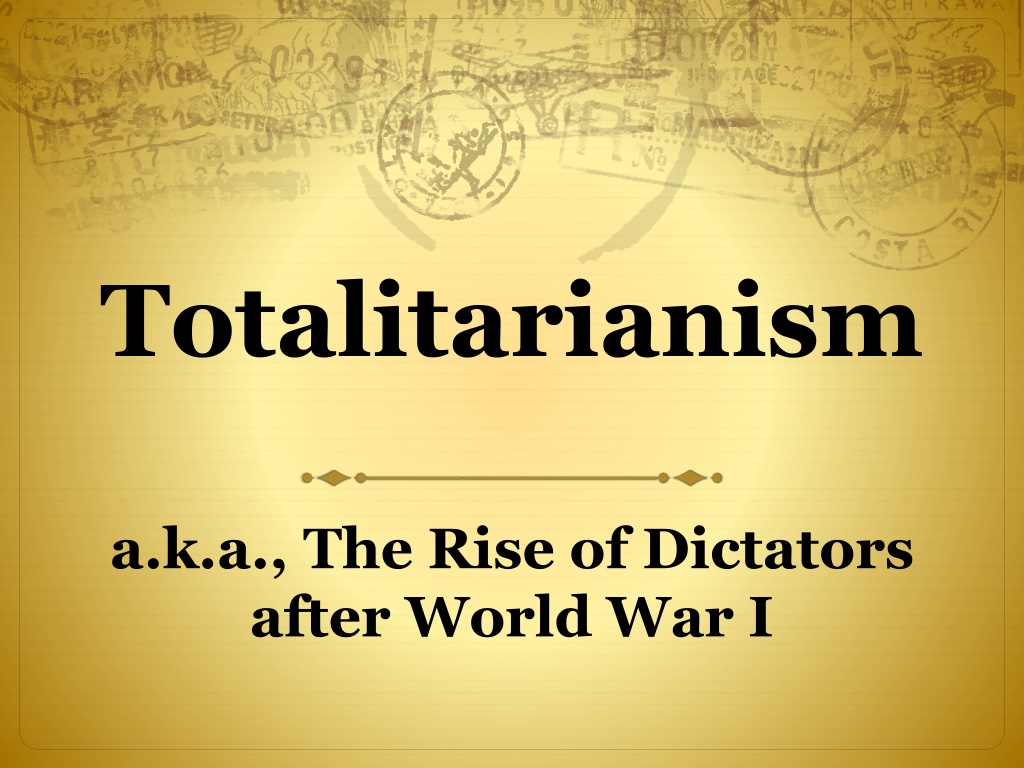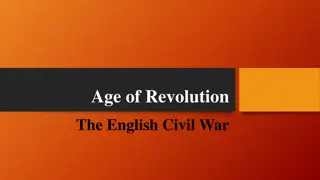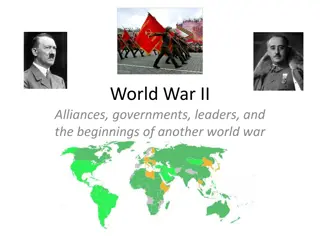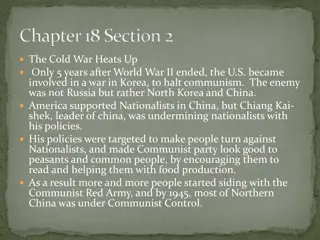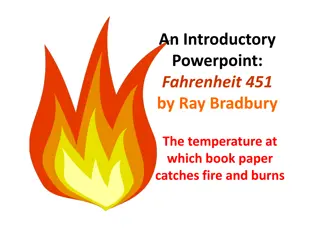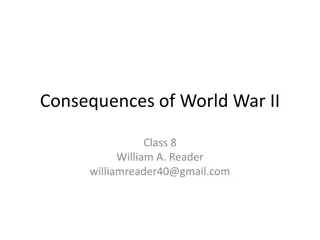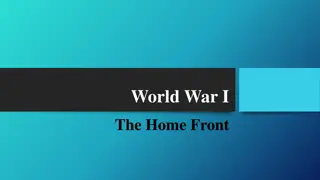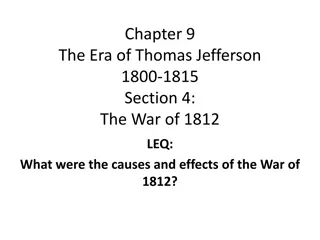The Rise of Totalitarianism and Charismatic Dictators Post-World War I
Totalitarianism emerged as charismatic dictators rose to power in Italy, Germany, and Russia after World War I. The Lost Generation, disillusioned by the war, contributed to the vulnerability of people seeking new beliefs. Features of totalitarianism included one-party dictatorship, an all-powerful leader, the absence of individual rights, and the use of propaganda.
Download Presentation

Please find below an Image/Link to download the presentation.
The content on the website is provided AS IS for your information and personal use only. It may not be sold, licensed, or shared on other websites without obtaining consent from the author. Download presentation by click this link. If you encounter any issues during the download, it is possible that the publisher has removed the file from their server.
E N D
Presentation Transcript
Totalitarianism a.k.a., The Rise of Dictators after World War I
A. The Lost Generation The name given to the young people who came of age during World War I. It referred not just to the dead, but also to the living who survived the war but were still lost.
A. The Lost Generation (cont.) The living suffered from a loss of faith in many traditional things: 1) God. 2) Country. 3) Mankind.
A. The Lost Generation (cont.) In Italy, Germany and Russia, several factors contributed to the rise of charismatic dictators: 1) Loss of faith. 2) Economic destruction. 3) Dissatisfaction with the Treaty of Versailles.
A. The Lost Generation (cont.) Suffering, angry people were vulnerable to the promises and rants of those who wanted power. Having lost faith in traditional institutions, they were hungry for something new to believe in.
B. Features of Totalitarianism 1) One-party dictatorship All other parties outlawed. No competitive elections. Hardship demands unity.
Italy Soviet Union Germany Communist Party Nazi Party Fascist Party
B. Features of Totalitarianism 2) All-powerful leader Head of the party has total power. Worshipped in cult of personality. Defying him comes at a high price.
Adolf Hitler Benito Mussolini Josef Stalin
B. Features of Totalitarianism 3) No individual rights A luxury we can t afford. Causes disunity; stops progress. Focus is on obedience & sacrifice for the good of the whole.
B. Features of Totalitarianism 4) Use of propaganda Govt controls all media outlets. Big Lie technique. Akin to brainwashing.
B. Features of Totalitarianism 5) Use of violence Opposition is swiftly silenced. People are scared into submission. Controls word of mouth.
B. Features of Totalitarianism 6) Promise of an ideal society Utopia in exchange for sacrifice. Carrot & stick approach. Offers hope to suffering, vulnerable people.
World domination by the master race. Create a classless society. Rebuild the Roman Empire.
B. Features of Totalitarianism 7) Scapegoating Provide angry people with a common enemy. Quickest way to build unity. Allows the many to put blame on the few.
Inferior races. (i.e., non- Germans) Communists. The propertied classes.
